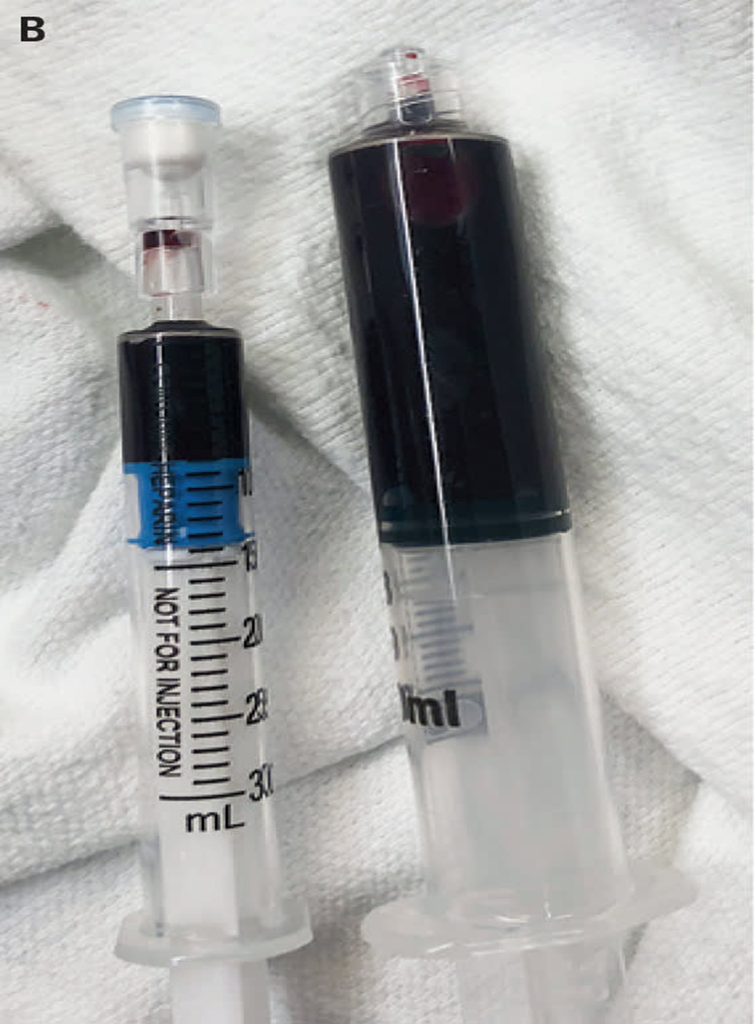As healthcare professionals, we are well-versed in the colorful vernacular of our field, but sometimes idioms take on a startlingly literal twist. This was the case for a 25-year-old woman who presented at the Miriam Hospital in Providence, Rhode Island, not just feeling blue but appearing navy blue as her blood turns blue, reflecting a rare medical condition.
Methemoglobinemia: The Blue Clue
This unusual case, recently documented in the New England Journal of Medicine, underscores the importance of recognizing rare but serious medical conditions. The patient arrived at the emergency room with an alarming complaint: “I’m weak, and I’m blue.” Upon examination, Dr. Otis Warren, the attending emergency physician, diagnosed her with acquired methemoglobinemia, a rare but potentially life-threatening condition.
Methemoglobinemia occurs when the body produces excessive methemoglobin, which, while capable of carrying oxygen, fails to release effectively to tissues. This can result in cyanosis, where the skin, lips, and nails take on a blueish hue, a tell-tale sign of oxygen deprivation at the cellular level.

The Trigger in this Case?
To alleviate toothache pain, the patient uses a seemingly innocuous over-the-counter topical pain reliever containing benzocaine. Despite her claim of not using the entire bottle, it was evident that she had applied a substantial amount. Benzocaine, while effective for numbing, can sometimes lead to the oxidation of hemoglobin into methemoglobin, particularly when used in excessive amounts.
Dr. Warren, who had encountered this condition once before in a patient treated with antibiotics, recognized the symptoms immediately. “The skin color looked the same,” he recalled, emphasizing the indelible impression such cases leave on a physician’s memory.
What Exactly is Methemoglobinemia?
Methemoglobinemia is a blood disorder where insufficient oxygen finds its way to your cells. Typically, oxygen travels its course within your bloodstream courtesy of hemoglobin, a protein hitching a ride on your red blood cells. Ordinarily, hemoglobin graciously relinquishes oxygen to cells all over your body. Yet, there’s a unique character in this tale—methemoglobin. This variety of hemoglobin ferries oxygen through your blood but somehow fumbles when it’s time to set it free for your cells’ use. If your body churns out excess methemoglobin, it stages a coup against your usual hemoglobin, resulting in a shortfall of oxygen reaching your cells. It’s akin to an oxygen drought in your body’s landscape, leaving your cells parched and needing replenishment.
Quick Thinking and Treatment
The treatment for methemoglobinemia is straightforward but critical: methylene blue, an antidote that helps convert methemoglobin back to its functional form. Within minutes of administration, the patient reported significant improvement. She received a second dose for good measure and spent the night under observation. The following morning, her symptoms had resolved, and she was discharged with a stern reminder to consult her dentist for ongoing dental issues.
A Stark Warning
This case serves as a poignant reminder for us as healthcare providers: while patients might view over-the-counter medications as benign, they can harbor significant risks. Dr. Warren advises caution: “People have no idea something very specific and dangerous can happen. It is not a mild side effect.”
A Cautionary Tale
This case is a stark reminder for medical professionals to educate patients on the potential risks of over-the-counter medications. When a patient presents with unusual symptoms and a “blue” appearance, considering methemoglobinemia could be life-saving. Always advise caution with the use of benzocaine-containing products and ensure patients are aware of their potential dangers.
In conclusion, in medicine, where phrases and idioms often find their way into diagnostic descriptions, “feeling blue” has never been more literal. Beyond the poetic metaphor, a serious underlying medical issue could be at play. Stay vigilant, educate your patients about the potential dangers of self-medication, and always be prepared for the unexpected manifestations of common phrases.
Disclaimer Statement: This information is from a third-party health news channel. The opinions expressed here belong to the respective authors/entities and do not reflect the views of Docquity. Docquity does not assure, endorse, or vouch for any of the content and bears no responsibility for it in any way. It is essential to take all necessary steps to ensure the information and content provided are accurate, current, and verified. Docquity disclaims any express or implied warranties related to the report and its contents.
References
Feeling blue: US woman treated by doctors after blood turned navy [Internet]. Accessed on June 13, 2024. Available at: https://www.theguardian.com/us-news/2019/sep/19/woman-navy-blue-blood-rhode-island-hospital
About Docquity
If you need more confidence and insights to boost careers in healthcare, expanding the network to other healthcare professionals to practice peer-to-peer learning might be the answer. One way to do it is by joining a social platform for healthcare professionals, such as Docquity.
Docquity is an AI-based state-of-the-art private & secure continual learning network of verified doctors, bringing you real-time knowledge from thousands of doctors worldwide. Today, Docquity has over 400,000 doctors spread across six countries in Asia. Meet experts and trusted peers across Asia where you can safely discuss clinical cases, get up-to-date insights from webinars and research journals, and earn CME/CPD credits through certified courses from Docquity Academy. All with the ease of a mobile app available on Android & iOS platforms!







